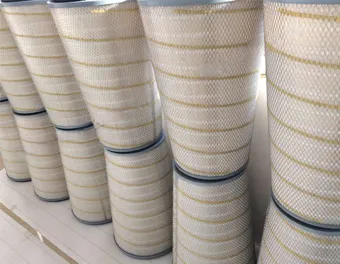 Tel:
+8615930870079
Tel:
+8615930870079
ספט . 07, 2024 23:47 Back to list
High-Performance Metal Filter Elements | Durable & Reliable Filtration Solutions
Understanding Metal Filter Elements Enhancing Filtration Efficiency
In the realm of industrial filtration, metal filter elements have carved out a significant niche due to their durability, efficiency, and versatility. These filters are designed to remove impurities and contaminants from various fluids and gases, serving essential roles in a wide array of applications—from automotive and aerospace industries to food processing and water treatment.
Composition and Design
Metal filter elements are typically made from various metals, including stainless steel, aluminum, and alloys. The choice of material depends on the specific requirements of the application, including temperature resistance, corrosion resistance, and mechanical strength. The design of these filters can vary, comprising woven mesh, sintered metal, or expanded metal, each offering unique advantages.
Woven mesh filters are constructed from interlocking metal wires, forming a barrier that traps particles while allowing liquids or gases to flow through. Their open structure allows for high flow rates, making them ideal for applications requiring minimal pressure drop. Sintered metal filters, on the other hand, are created by fusing fine metal powders under heat and pressure. This results in a porous structure with a more uniform pore size, enabling precise filtration and enhanced contaminant capture.
Advantages of Metal Filters
One of the primary advantages of metal filter elements is their longevity. Unlike traditional paper or fabric filters, which can degrade or clog over time, metal filters are designed for a longer lifespan and can withstand more rigorous conditions. They can be cleaned and reused, thereby reducing waste and operating costs.
metal filter element

Additionally, metal filters provide superior temperature resistance, making them suitable for high-temperature applications such as engine oil filtration or industrial processes involving heated gases. Moreover, their chemical resistance allows them to function effectively in harsh environments, including those found in pharmaceutical or chemical manufacturing processes.
Metal filters are also capable of capturing a broader range of particle sizes, from large debris to fine particulate matter, which enhances their efficiency in maintaining the integrity of systems they protect. Their ability to handle high flow rates further makes them a preferred choice in applications where large volumes of fluid are processed, such as in HVAC systems or hydraulic circuits.
Maintenance and Sustainability
Maintenance of metal filter elements is relatively straightforward. Many can be cleaned through backwashing or ultrasonic cleaning, allowing for the removal of captured contaminants while preserving the filter structure. This ease of maintenance contributes significantly to the sustainability of metal filters, as they can dramatically reduce the frequency of replacement compared to disposable filters.
Conclusion
In conclusion, metal filter elements play a pivotal role in achieving high levels of filtration efficiency across diverse industrial applications. Their unique characteristics, including durability, temperature and chemical resistance, and ability to handle various particle sizes, make them an attractive solution for businesses aiming to enhance their filtration processes. As industries continue to prioritize sustainability and operational efficiency, the use of metal filters will likely expand, driving innovation and improvements in filtration technology. Investing in quality metal filter elements not only contributes to better system performance but also aligns with broader goals of waste reduction and environmental responsibility.
-
Types and Applications of Air Filtration CartridgesNewsJul.28,2025
-
The Role of Gas Turbine FiltersNewsJul.28,2025
-
Mastering Air Filter Cartridge UseNewsJul.28,2025
-
Advanced Turbine Filters for Modern Gas TurbinesNewsJul.28,2025
-
Cellulose Air Filter Cartridge Advantages in Dust FiltrationNewsJul.28,2025
-
Cellulose Filters for Air Particle ReductionNewsJul.28,2025

 Email:
Email:





